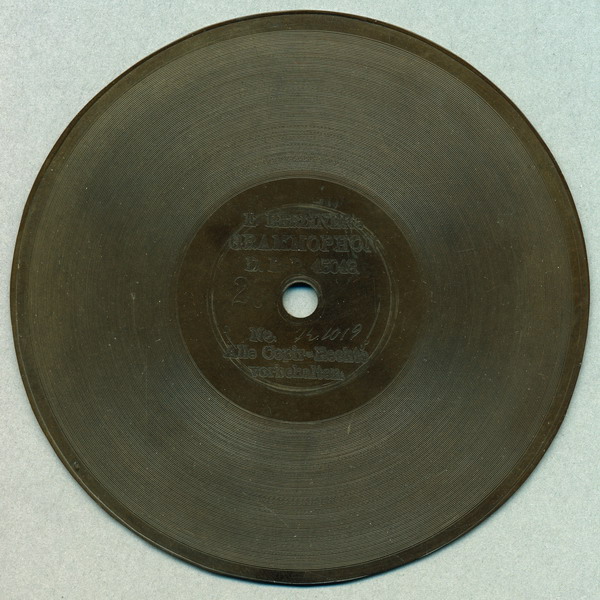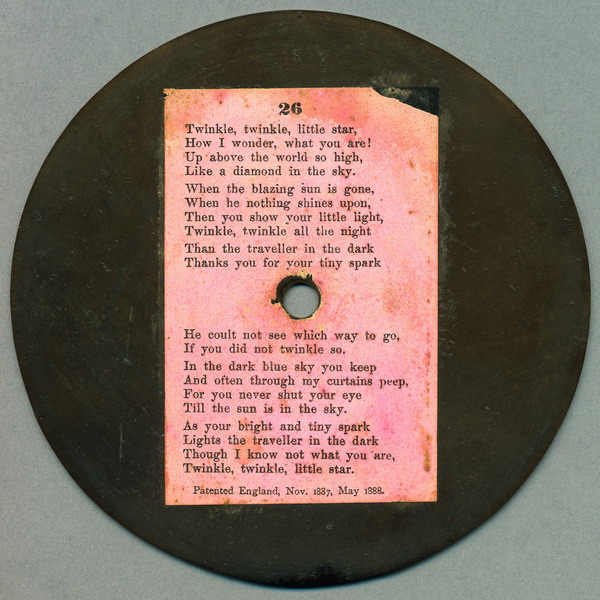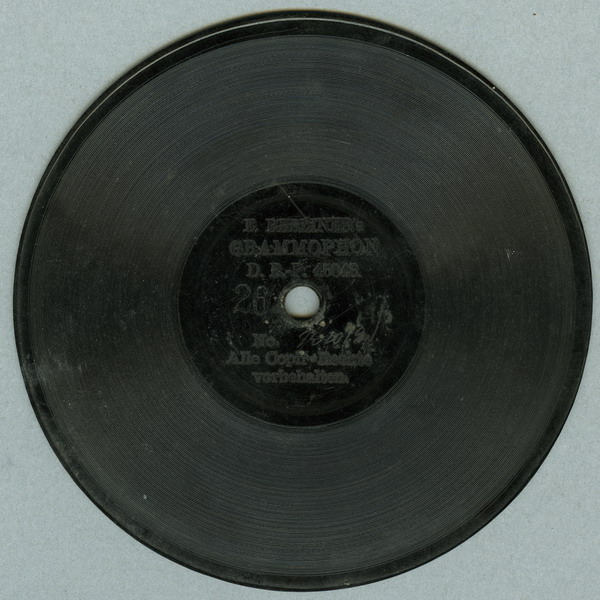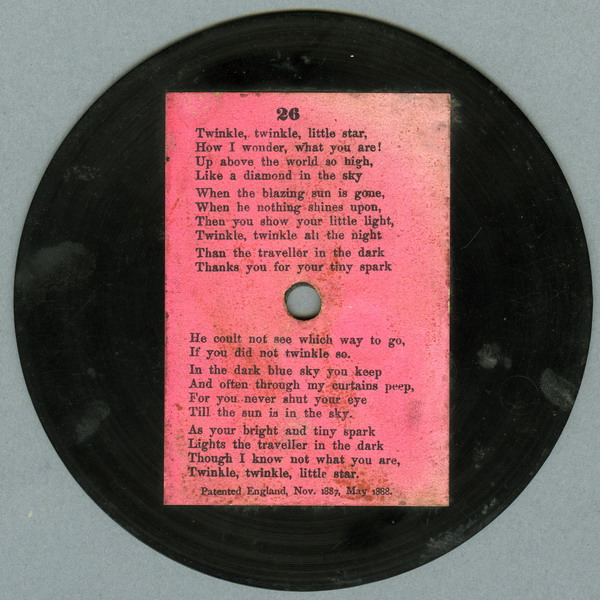

|
|
|||
|
Retour à la page d'accueil des disques Berliner Gramophone de 12,5 cm |
|||
|
|
|||
Le catalogue en ligne des disques Berliner Gramophone de 12,5 cm
The Gramophone five inch Berliner records online catalogue
TWINKLE, TWINKLE, LITTLE STAR


To listen (fragment)


To listen (fragment)
Berliner 5 inch record #26 - TWINKLE, TWINKLE LITTLE STAR
Twinkle, twinkle, little star,
How I wonder what you are!
Up above the world so high,
Like a diamond in the sky!When the blazing sun is gone,
When he nothing shines upon,
Then you show your little light,
Twinkle, twinkle, all the night.Then the traveller in the dark,
Thanks you for your tiny spark,
He could not see which way to go,
If you did not twinkle so.In the dark blue sky you keep,
And often through my curtains peep,
For you never shut your eye,
Till the sun is in the sky.As your bright and tiny spark,
Lights the traveller in the dark,—
Though I know not what you are,
Twinkle, twinkle, little star.More about this song : http://en.wikipedia.org/wiki/Twinkle_Twinkle_Little_Star
See also : "Ah! vous dirai-je maman" : http://en.wikipedia.org/wiki/Variations_on_%22Ah_vous_dirai-je%2C_Maman%22---
[...] It was Bill Golden who asked me one day in 1891, if I would go with him to see a German who had started experimenting with a flat-disc talking machine record and make some trials. We found Emile Berliner in his laboratory, moving up and down in his small studio buzzing on a diaphragm, "Hello, hello!" and in his guttural, broken English, "Tvinkle, tvinkle little star, how I vonder vot you are". I was introduced to the inventor and invited to witness the making of the first gramophone record. Berliner placed a muzzle over Golden’s mouth and connected this up by a rubber hose to a diaphragm. I was at piano, the sounding box of which was also boxed up and connected to the diaphragm by a hose resembling an elephant’s trunk. He asked, "Are you ready?" and upon our answering yes, he began to crank like a barrel organ, and said, "Go." The song finished and Berliner stopped cranking. He took from the machine a bright zinc disc and plunged it into an acid bath for few minutes. Then taking it out of the acid, he washed and cleaned the disc.
Placing this disc on a reproducing machine, also operated by hand like a coffee grinder, he played back the resulting record from the etched groove. To our astonished ears came Billy Golden’s voice. He explained to us how this method was superior to the phonograph. I was spellbound by the beautiful round tone of the flat gramophone disc. Before leaving, I exacted a promise from Berliner that he would let me work for him when his machine was ready for development. [...]
From F.W. Gaisberg, Music on Record, Northumberland Press, UK (1947)